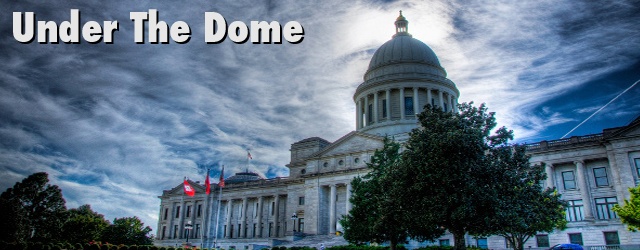Statehouse Control To Dominate 2012 Political News
by May 3, 2012 8:50 am 100 views

With a Presidential race unlikely to matter in Arkansas and looming lackluster match-ups in all four Congressional races this fall, a real focus for the 2012 political news cycle will be the outcome of the state legislative races.
There are a number of heated legislative primary contests that will no doubt determine the match-ups for the November elections, which will set the agenda for the 2013 General Assembly.
To be blunt, Democratic control of the State House and the State Senate will reinforce Gov. Mike Beebe’s agenda of conservative budgeting, Medicaid reform and a closer to status quo state government operation.
Republican control of the two chambers will lead to a very different agenda and the GOP will have the ability to override gubernatorial vetoes of non-budget bills if they gain majorities.
Republican leaders have outlined a number of policy items that they expect to work on if they gain control of the House and Senate, including larger tax reform, education changes, pro-life measures, and fraud bills aimed at elections, unemployment benefits and Medicaid.
THE PRIMARIES
There are 11 State Senate primaries — five on the GOP side and six on the Democratic side. In the House, there are 22 primaries with 14 in the Democratic column and eight in the Republican column.
Interestingly, there are no more than two Republicans running for any State House or State Senate seat, so there will be no GOP legislative run-offs after the May 22 primary.
These primaries will set the stage for the fall elections when Democrats aim to hold or build on their 54 House seats and 20 Senate seats, while Republicans target the magical majority numbers of 51 in the House and 18 in the Senate. At this juncture, either party could prevail.
Talk Business bloggers Jason Tolbert and Michael Cook offer their perspectives on the Senate races in recent posts, which you can read here and here.
Tolbert sees some new guard versus old guard match-ups in the GOP Senate primaries, while Cook notes that only half of the Democratic Senate primaries will be settled after the primary season.
THE NUMBERS
Here are numbers you need to know to understand how razor-thin these elections will be this year. The calculations also highlight why the smallest advantage or disadvantage could tip the scales of power one way or the other for either party.
After the primaries conclude, there will be a definite 10 GOP seats in the 35-member Senate. Democrats will hold 9 for certain.
That leaves 16 general election match-ups of which Republicans must win 8 and Democrats must win 9 to have majority control.
In the House after the primary dust settles, there will be 26 GOP seats and 26 Democratic seats — dead even.
That leaves 48 general election match-ups of which either party must win at least 25 to control the House.
THE 50-50 PROPOSITION
It is impossible for the Senate to wind up with a tie in party power — unless a member moves to independent status or vacates the seat — owing to the odd number of 35 State Senate seats.
In the 100-member House, it is possible to have 50 Republicans and 50 Democrats after the November elections.
What would happen then?
House rules state that the membership will elect its Speaker. Gauging from the recent vote count that propelled Speaker-designate Darrin Williams to the post, it is unlikely we’d see a break from party ranks.
Other states have dealt with the issue in the past and have found interesting solutions. In 2003, North Carolina had a tie situation and after a week of attempts and negotiations, leaders brokered a power-sharing arrangement with co-Speakers.
Might we see this scenario in Arkansas? It would be fascinating political theater and unchartered territory for the state.
As you can see, the outcome of these legislative races, their impact on the 2013 state political agenda, and its meaningfulness to the Democratic and Republican parties is going to make this an epic year for statehouse elections.
We’ve already seen the rhetoric ratchet up in some general election races and the volume and intensity is only going to rise between now and November. When you see what is at stake, you understand why 2012 is going to be a seminal year under the capitol dome.
